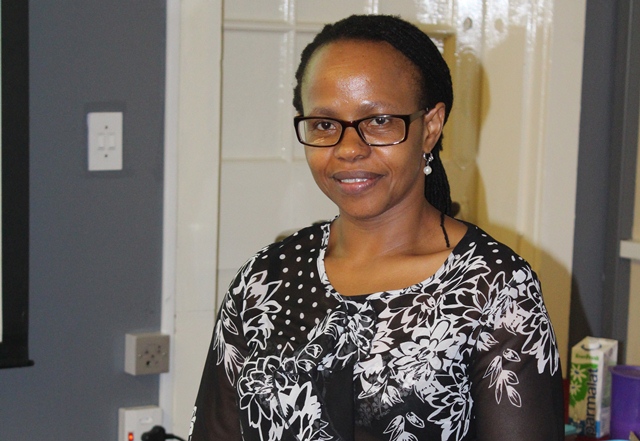Talking about the interconnectedness of rural women through ubuntu and showcasing the difficulties that women face in these areas (rural) were some of the issues highlighted by DUT’s Registrar, Professor Thenjiwe Meyiwa , during her seminar: A window into the life of South Africa’s rural womanhood: Struggles, Resilience and Agency of two decades, held at the DUT City Campus.
Prof Meyiwa based her talk on rural women who account for a great proportion of the agricultural labour force, producing the majority of food grown, especially in subsistence farming, and performing most of the unpaid care-work in rural areas. “I was interested in researching rural women as I am giving them a voice. Rural women continue to face challenges– which are more difficult than those of men. Challenges range from accessing education, employment as well as HIV/AIDS and violence. This research which I had conducted in KwaZulu-Natal and the Eastern Cape also stems from my own experiences, growing up with my granny and I wanted to draw attention to reflective ubuntu and focus on the strengths of individuals and groups of women, basing my research on their daily lives and concerns as well as obstacles that they had faced,” she said.
Prof Meyiwa said women were exposed to violence and vulnerability, especially when they had to walk long distances to collect water, were forced into marriages from a young age and exposed to polygamy as well as being vulnerable and prone to diseases such as HIV/Aids. She added that to supplement their (rural womens’) income, they resorted to selling vegetables such as cabbages and mealies, thatching roofs for other members of the community and doing domestic work such as sewing, chicken farming and baking, to sustain their households as they are the daily providers in their homes. One of their greatest challenges was the fact that they did not have access to information about any educational programmes in their areas, only a few people knew of such projects which were based outside their areas of residence and proved to be expensive and too far to travel and attend.
Prof Meyiwa stressed that empowerment of women was crucial due to the myriad of historical marginalisation. “Commitment to promoting women’s rights, gender equality and (eradicating) gender-based-violence has been expressed by the South African government, and this has been witnessed through new laws and policies that were passed after 1994,” she said.
From her research findings, Prof Meyiwa recommended that basic education training, especially involving training programmes for adults who dropped out or never went to school, were vital. “Training in product design and marketing and linkages and exposure to new markets, human rights training, basic health care training and providing post-training services such as access to credit or savings programmes, were projects that needed to be done in such areas,” said Prof Meyiwa.
Prof Meyiwa is a NRF rated social scientist. She is also a Honorary Research Affiliate in the University’s Faculty of Arts and Design. Prior to joining DUT, she was Research Director in the Education and Skills Development Programme at the Human Sciences Research Council (HSRC). She holds a Doctor of Philosophy degree in Feminist Oral Studies from the University of Natal (now UKZN) and a Mcom (Organisation and Systems Management) from UKZN.
– Waheeda Peters
Pictured: Professor Thenjiwe Meyiwa, DUT Registrar talks about rural women, the challenges they encounter in their daily lives and some of the solutions for this problem.


